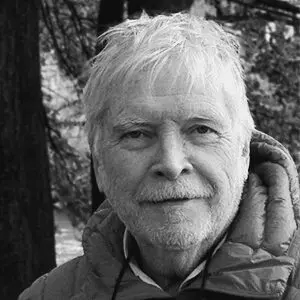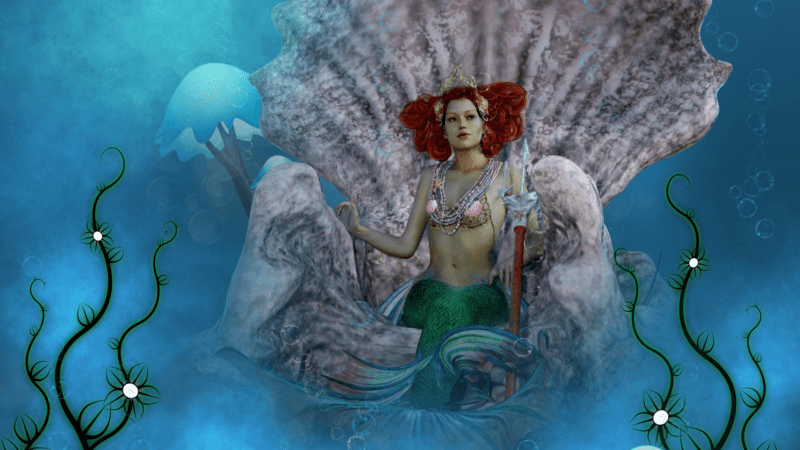

This is the eleventh blog post in the series Sixteen Psychological Reflections on COVID-19 by Robert Romanyshyn
Mary Shelley’s visionary and prophetic story was published in 1818. Given the content of the story in which the feminine characters suffer the consequences of Victor Frankenstein’s work, it is telling that the1818 edition was published anonymously. It was only in the next edition in 1821 that her name appeared on the title page.
What is also important to note about her book is that its subtitle has largely disappeared in the popular imagination of the story. Here is the title as it appeared:
Frankenstein; Or, The Modern Prometheus
Not only does the subtitle situate her story within the myth of Prometheus, it indicates more than an analogy between them. The subtitle underscores an identification between Victor Frankenstein and Prometheus. Victor Frankenstein is Prometheus!
The myth of Prometheus is the backdrop of Victor Frankenstein’s story. His story, which has endured for more than 200 years and has been told and retold in countless films and stage plays, even most recently in a London production, still lingers and even, we could say, haunts the collective imagination. It is a parable for our time.
In the next two blogs I summarize key aspects of Frankenstein’s story. In this blog I attend to this mythic context of his story.
Victor Frankenstein is truly a modern Prometheus. Like his mythological forebear his work is done in service to humankind. There are, however, two significant differences between the mythic figure of Prometheus and the fictional character of Victor Frankenstein.
First, Prometheus’s story takes place within a sacred cosmos where the gods are real presences. In his service to humankind, he therefore goes against the gods. Victor Frankenstein’s story unfolds within a secular world in which he is a new god.
Second, it is Prometheus who suffers for transgressing the boundaries between the gods and humankind. Chained to a rock, his liver is eaten each night only to regenerate every morning, forever repeating his punishment.
While Victor Frankenstein suffers for his hubris, his work also brings on suffering for many others, especially the women in Mary Shelley’s story, and particularly Elizabeth Lavenza, his bride-to-be. Moreover, the cup of life, as he says, is spoiled, but it is spoiled not only for him. It is also spoiled for us who are living within his secular version of the Promethean story.
The myth of Prometheus is a story that includes his brother Epimetheus and Pandora, the wife of Epimetheus. This triad offers a necessary and insightful perspective on the question regarding the death of the feminine as the price for Victor’s Promethean dream.
In the myth, Prometheus, whose name means forethought or foresight, is the creator of humankind but dissatisfied with the lot imposed upon them by the gods, he steals fire from the gods and gives it to mortal beings. Angered by this action, the gods take their revenge through Epimetheus, whose name means afterthought or hindsight.
Prometheus has warned his brother against taking any gifts from the gods, and especially warns him not to take Pandora, whose name means the “all-giver,” as his bride. But, of course, as in so many mythic tales about the gods and humans, the warning is the very thing that sets the story in motion.
So, Epimetheus does take Pandora as his bride, and when she opens the jar that was given to her as a wedding gift from Zeus, she releases all the evils upon humankind. But there is one gift that remains in the jar. It is the gift of hope to ease their sufferings.
We could conclude that Pandora spoils Prometheus’s work of creation and then draw a parallel with Victor Frankenstein, as the modern Prometheus. Foreseeing that Elizabeth Lavenza was too naïve and lacked the kind of rigor of mind needed for his work, he excludes her from the very beginning of it. And, when in his second act of creation he realizes the horror of what he has done, he destroys the mate he promised to his Monster.
But if we stop here, then we leave out that Pandora’s jar still has the seed of hope. In his discussion of the myth of Prometheus, Ivan Illich has appealed to us to remember the place of Epimetheus and Pandora in the myth. Linking the Promethean tale to the consumer ethos that is exhausting the earth, he writes: “We need a name for those who love the earth on which each can meet the other. We need a name for those who collaborate with their Promethean brother in the lighting of the fire.”
For Illich that name is Epimetheus. To make a place for Epimetheus in the tale of Prometheus, is to re-imagine the feminine figure of Pandora who bears the gift of hope. As described in The Frankenstein Prophecies, if the feminine presence in the guises of Pandora, Eve, Elizabeth Lavenza and the Monster’s mate are sidelined, exiled, marginalized as spoilers of creation, then so too is hope, as the gift that allows one to endure in the face the crisis we face today. The seed of hope that remains in Pandora’s jar is born in the tension between the Promethean will of Victor Frankenstein’s dream to be a new god of creation leaping ahead to imagine what might be, and the Epimethean pause to remember what the consequences of that leap have been. Between imagination and memory humankind carries the fragile vessel of hope.
That jar breaks when the forethought of imagination, with all its wondrous and exciting appeals, leaps ahead without memory of what is being changed. The figure and story of Victor Frankenstein exemplifies the destructive character of this unchecked Promethean imagination.
That jar also breaks when the afterthought or hindsight of memory becomes a nostalgic longing for and destructive repetition of some past age. The rise of political nationalism in Germany in the 1930s and its apparent repetition today in the USA are good examples.
The myth of Prometheus, Epimetheus and Pandora is an exemplary warning.
Is not the story of Victor Frankenstein as the modern Prometheus a similar warning about the dangers of acting as a false god who, setting himself apart from the natural order of life, would erase the boundaries not only between the sacred and the human, but also between us and the world of nature thereby making the conditions for the appearance of viruses like Covid-19 possible?
Are the myth and the story calling us to attend to how we have lost our place in the order of creation?
Enjoy all the essays in the series Sixteen Psychological Reflections on COVID-19.
You might also enjoy Robert Romanyshyn’s course Reflections on Ecology and Soul. In this course, Robert takes us on a journey into the depths of the soul of the world and into those places where nature, psyche, technology, and humans meet.

Robert Romanyshyn
Robert D. Romanyshyn is an Emeritus Professor of Clinical Psychology at Pacifica Graduate Institute, an Affiliate Member of The Inter-Regional Society of Jungian Analysts, and a Fellow of the Dallas Institute of Humanities and Culture. He is also a Core Faculty Member at Jung Platform.
More Posts by Robert Romanyshyn2 Comments
Join the discussion and tell us your opinion.
Comments are closed.
“Are the myth and the story calling us to attend to how we have lost our place in the order of creation?” — That quote from this current Romanyshyn essay is what compels me to think again and to imagine, as I anticipate the next episode in this series; and wonder: what if the COVID-19 virus, this submicroscopic bit of DNA carbon-based protoplasm, is simply trying to evolve, per Darwin, from the same organic substrate as did we humans over billions of years, into the ‘Sapiens’ we are today.
(Pardon me please, but I did consider deleting this post –but then realized that I might regret that also. Hmmm.
Mike, I am so glad that you did not succumb to the temptation of deleting your post. I found it provocative. I like Robert’s developing the theme of the stolen fire, a divine attribute and sharing it with us fragile mortals. For that he is punished, a Greek mythic image of the later Christian Christ who offers illumination to us mere mortals and is crucified on the rock of the cross but this time by the arrogance and power-thirsty Romans who see him as an impediment to their controls. It makes me think of another fire that I have been exploring, the burning bush that Moses comes across as he herds his flock of sheep; he strays off his path out of curiosity to wonder at how the bush is not consumed, a phenomenon against nature; that bush pulls him into his destiny, in spite of his admission he does not speak well.
This scene in Exodus is quite different from the hubris of VF who substitutes himself for the godly one and scatters chaos in the natural order. An interesting series of essays could be gathered on the flame, the fire, the spark, in literature and in mythic stories–that element when tame is a comfort, when its boundaries fall away it can devour a region, a town and more. When it becomes a nuclear fireball it can destroy the planet. Good material you put forth for reflection, Robert.